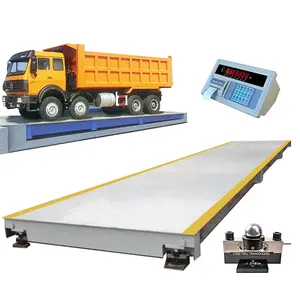Introduction to Weighing Bridges
A weighing bridge, a critical component in the logistics and transport industry, provides precise weight measurements for large vehicles and their cargo. These robust structures allow businesses to monitor their material handling processes, ensuring compliance with regulations and optimizing resource management. Whether you are involved in manufacturing, agriculture, or transportation, understanding the significance and functionality of weighing bridges can enhance operational efficiency and accuracy.
Types of Weighing Bridges
Weighing bridges come in various types, each designed for different applications:
- Above Ground Weighing Bridges: These are installed above ground level, allowing for easy visibility during loading and unloading operations.
- Pit Type Weighing Bridges: Installed below ground level, these bridges allow easy access for operators and help accommodate larger vehicles.
- Mobile Weighing Bridges: These are designed for portability, making them ideal for temporary sites or projects that require flexible installation.
- Electronic Weighing Bridges: Featuring advanced digital technology, these bridges provide high precision and facilitate data transfer for efficient record-keeping.
Applications of Weighing Bridges
The utilization of weighing bridges spans various sectors, enhancing operational robustness. Below are some key applications:
- Transport Industry: Weighing bridges are essential for ensuring vehicles comply with weight regulations, preventing overload penalties.
- Agriculture: Farmers and suppliers use weighing bridges to assess the load of produce like grains and livestock accurately.
- Logistics and Warehousing: Efficiently manage inventory and shipment loads, streamlining operations with precise weight measurements.
- Construction: Weighing bridges aid in monitoring materials being delivered and consumed on construction sites.
Features and Advantages of Weighing Bridges
Investing in a weighing bridge offers numerous features and advantages that make it indispensable:
- Durability: Built with robust materials such as steel, they can withstand harsh environments and heavy loads.
- High Accuracy: Electronic models provide superior precision, ensuring that weight measurements are consistent and reliable.
- User-Friendly Interface: Many modern weighing bridges come equipped with easy-to-use digital displays and software solutions for seamless operation.
- Data Management: Advanced systems allow for data logging and integration with other business management tools, enhancing overall workflow.
- Cost-Effective: Accurate weight management minimizes costs related to overloading, underloading, and operational inefficiencies.














































